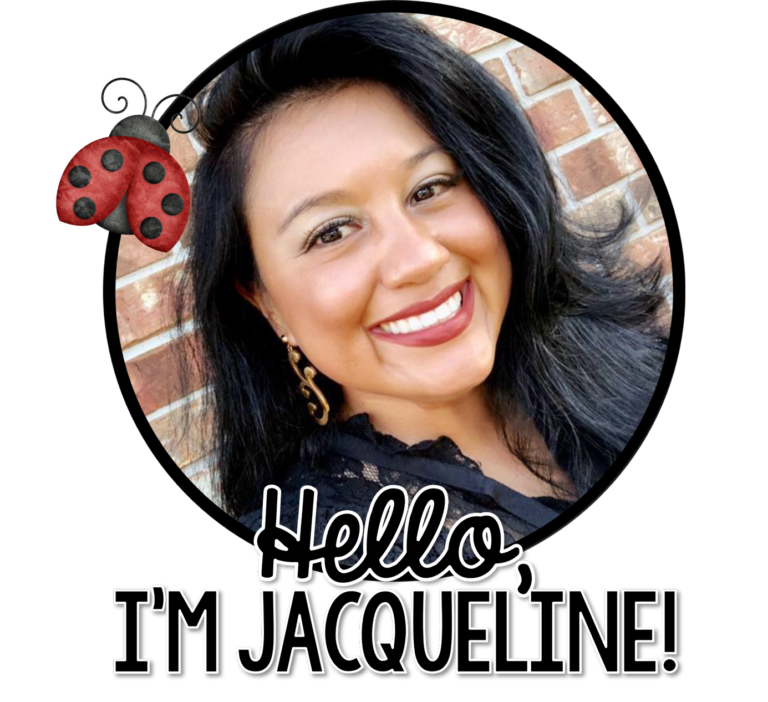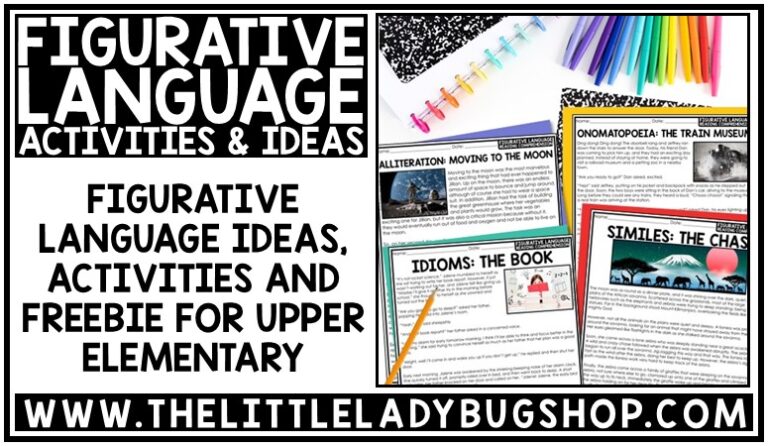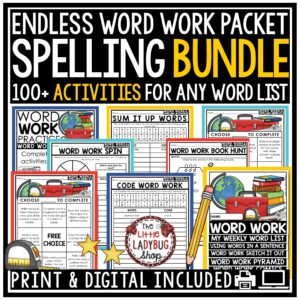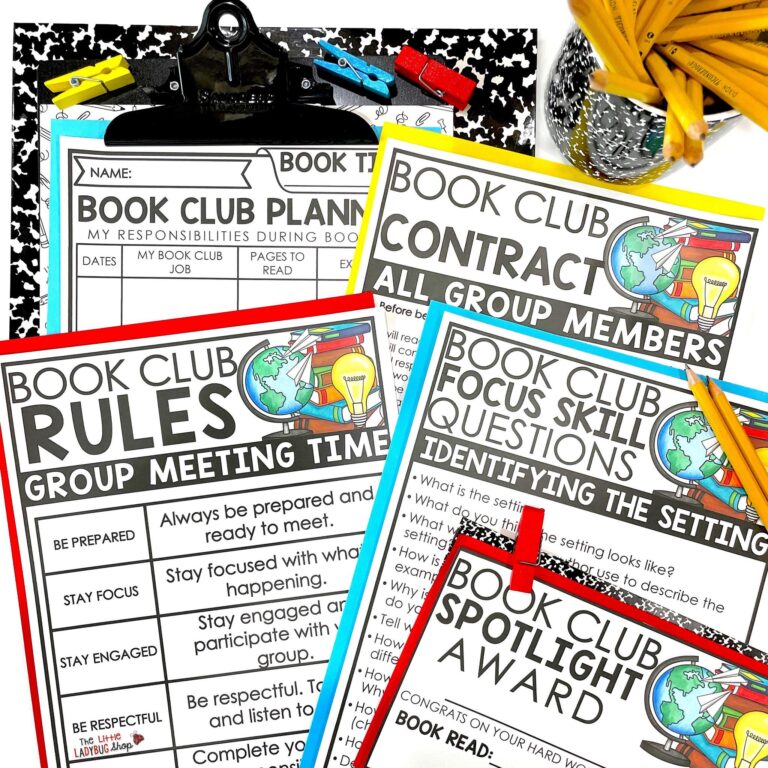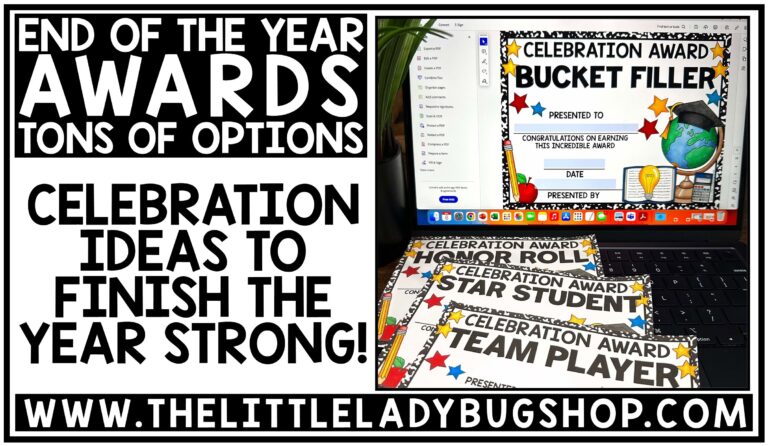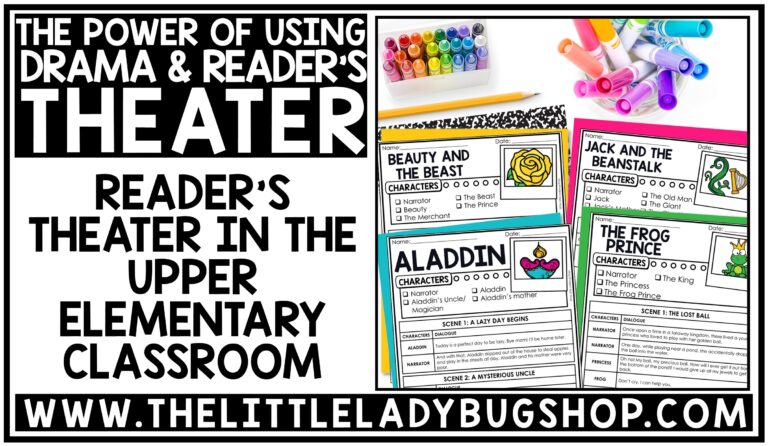
Spring Poetry Activities and Ideas for Upper Elementary
Share it:
Spring Poetry Activities and Ideas for Upper Elementary
By: Jacqueline, Marissa, Jeanine Updated February 3, 2025 Originally Written March 8,2022
Looking for the perfect spring-themed poetry bulletin board to brighten up your classroom? Why not have your students create spring-inspired poems! Poetry is a wonderful way to encourage creative expression while reinforcing writing skills. Plus, a poetry bulletin board display makes a fantastic, engaging showcase of student work.
I love incorporating poetry writing throughout the year, encouraging students to explore various poetry styles through both reading and writing. When teaching poetry, I focus on keeping the process fun, exciting, and full of creative choices. If you’re looking for tips on how to inspire young poets, here are some effective strategies for teaching poetry writing in upper elementary.
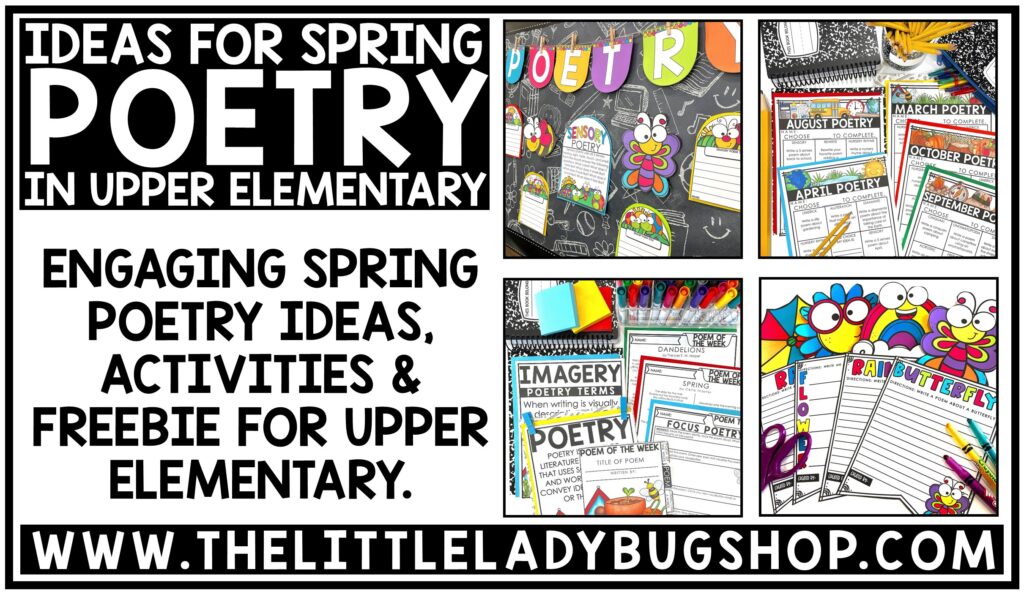
Teach Different Poetry Styles
Many students associate poetry with rhyming couplets, but poetry comes in many forms! While rhyme is an important aspect of some poetry, there are plenty of non-rhyming poetry forms to explore, such as:
- Free Verse Poems
- Acrostic Poems
- Blackout Poetry
- Haikus
- Cinquains
Introduce your students to various poetry styles and challenge them to experiment with different formats. This will help broaden their understanding and appreciation of poetry.
Steps for Teaching a New Poetry Style
When introducing a new type of poem, follow these structured steps:
- Read an example poem – Show students a well-crafted sample to analyze.
- Teach the poem’s structure – Discuss the rules, rhythm, rhyme scheme (if applicable), and other poetic elements.
- Model poem writing – Write an example together as a class, brainstorming ideas collaboratively.
- Encourage individual creativity – Have students draft their own poems.
- Peer Review – Pair students for constructive feedback, ensuring the poem follows the correct structure.
- Create the final draft – Provide students with publishing templates for their completed poetry.
Here Are My Favorite Spring Poetry Resources
Enhance your spring poetry lessons with these engaging resources:
- Spring Bulletin Board Craftivity Writing – A fun and creative way to encourage students to write and display their spring-inspired poetry.
- Spring-Themed Poem of the Week – Includes a mix of originally written and traditional poems, poetry term posters, and engaging activities to reinforce poetry concepts.
- Sensory Poem Bulletin Board Set – Features writing templates, decorative pennants, borders, and everything you need to create a vibrant spring poetry bulletin board.
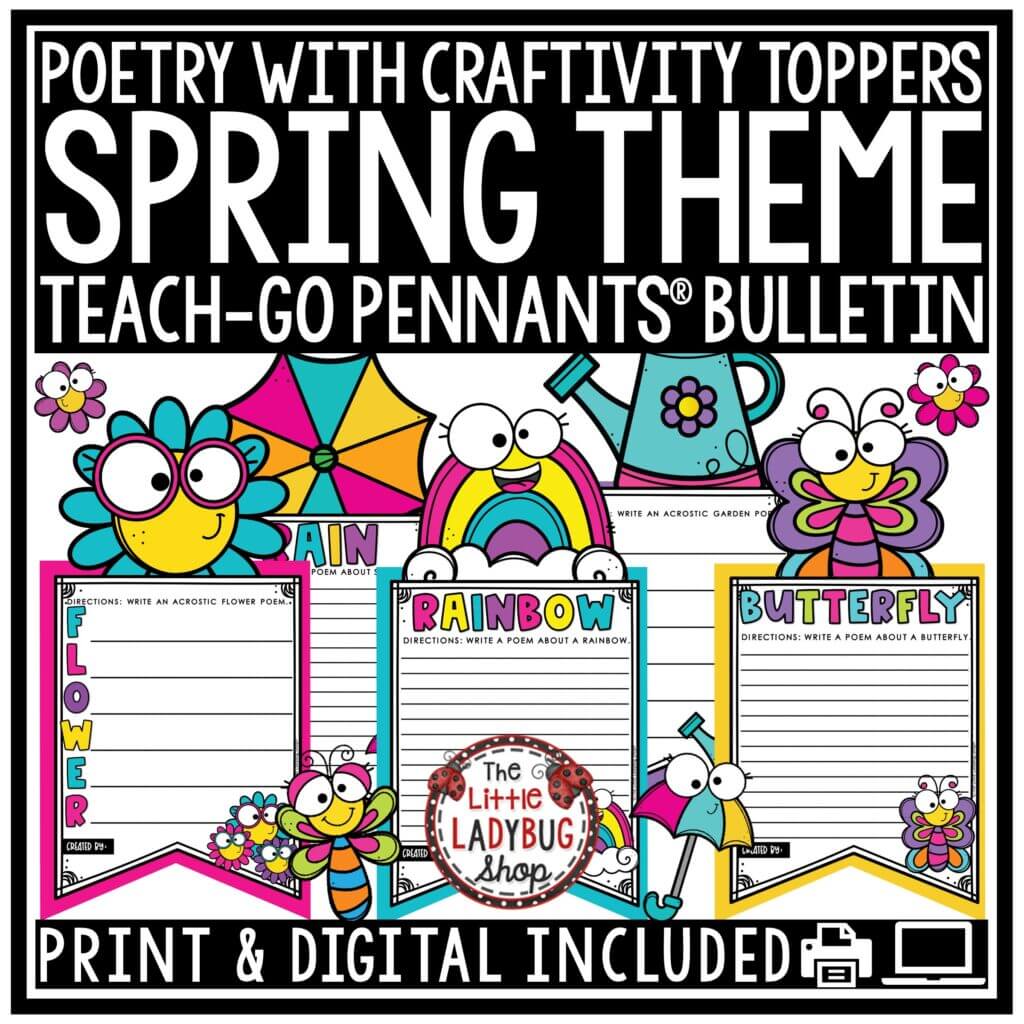
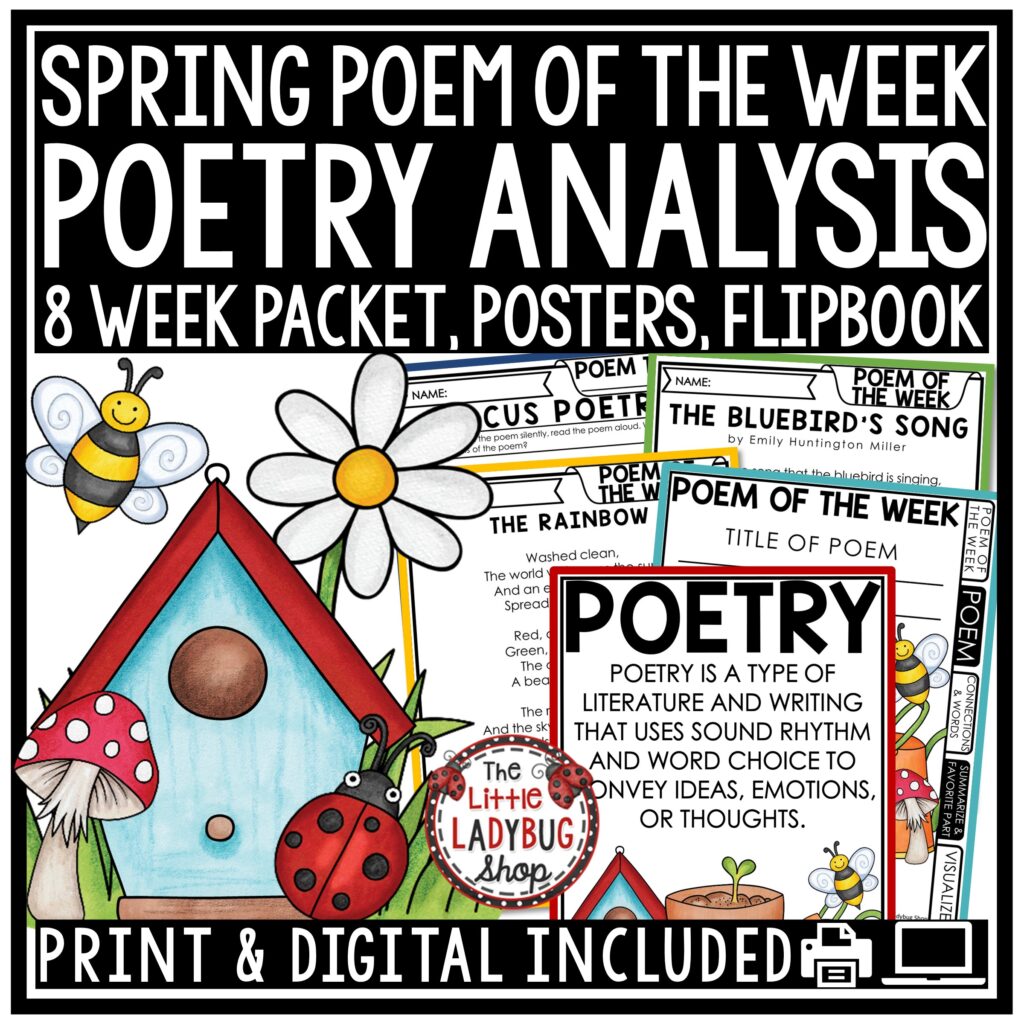
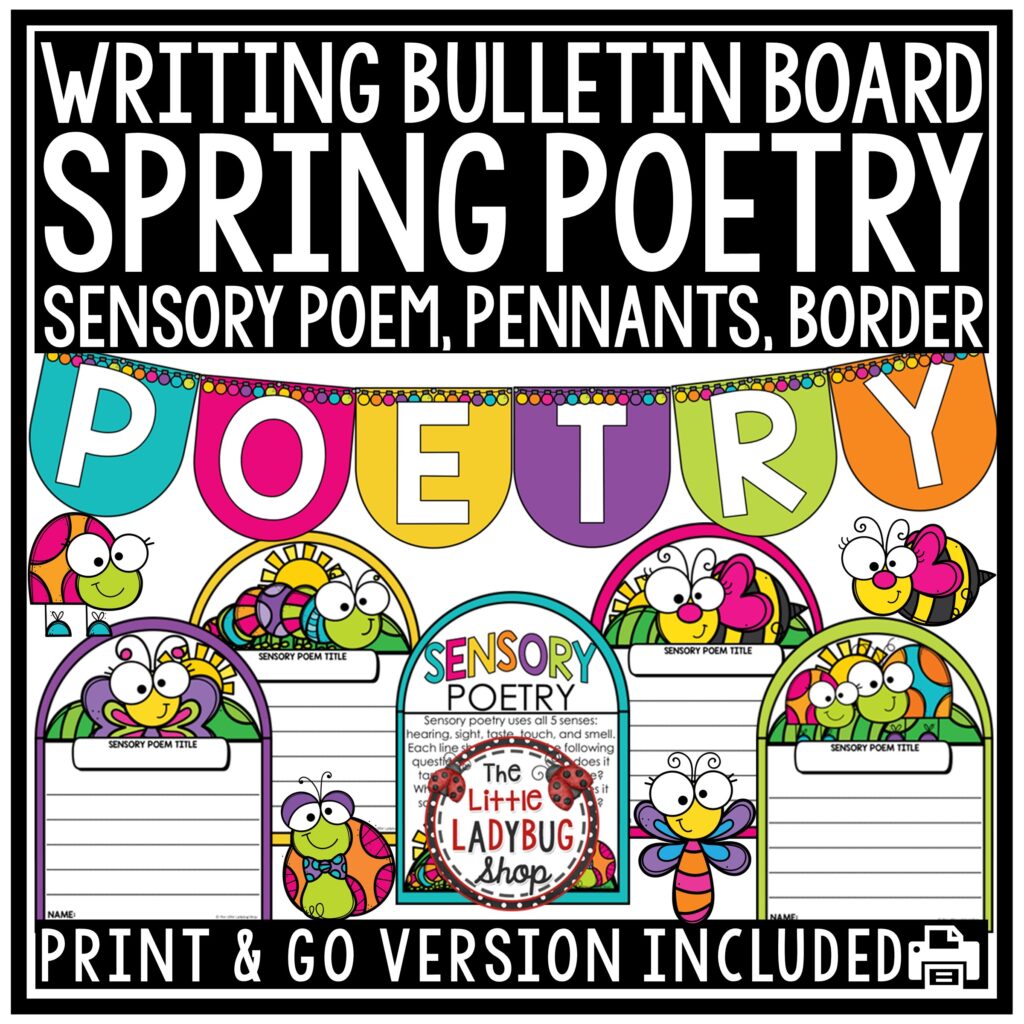
Encourage Collaboration
Poetry is even more enjoyable when it’s a collaborative experience! Engage students in brainstorming rhyming words, counting syllables, and giving peer feedback.
Rhyming Corner Activity
Set up a “Rhyming Corner” in your classroom to support students in generating rhyming words:
- Attach manila envelopes labeled with words students need rhymes for.
- Other students can write rhyming words on slips of paper and place them in the corresponding envelopes.
- Use this as a reference during poetry writing sessions!
Provide Choices for Student Engagement
Choice boosts motivation! Instead of assigning a single poetry topic, offer various spring-themed options. For example:
- Instead of “Write a poem about a rabbit,” ask, “Write a poem about your favorite animal.”
- Let students select between poetry styles (free verse, acrostic, haiku, etc.).
By giving students the freedom to choose, they take greater ownership of their writing.
Create a Stunning Spring Poetry Bulletin Board
Ready to create a vibrant Spring Poetry Bulleting Board? My Spring Poetry Bulletin Board Resource makes it easy! This engaging activity:
- Inspires students to write free verse and acrostic poems on spring topics.
- Includes beautiful templates for publishing their final drafts.
- Provides a ready-to-display format to create a stunning bulletin board showcase!
Set up your bulletin board with student poems, spring-themed decorations, and colorful borders to celebrate National Poetry Month or the changing season!

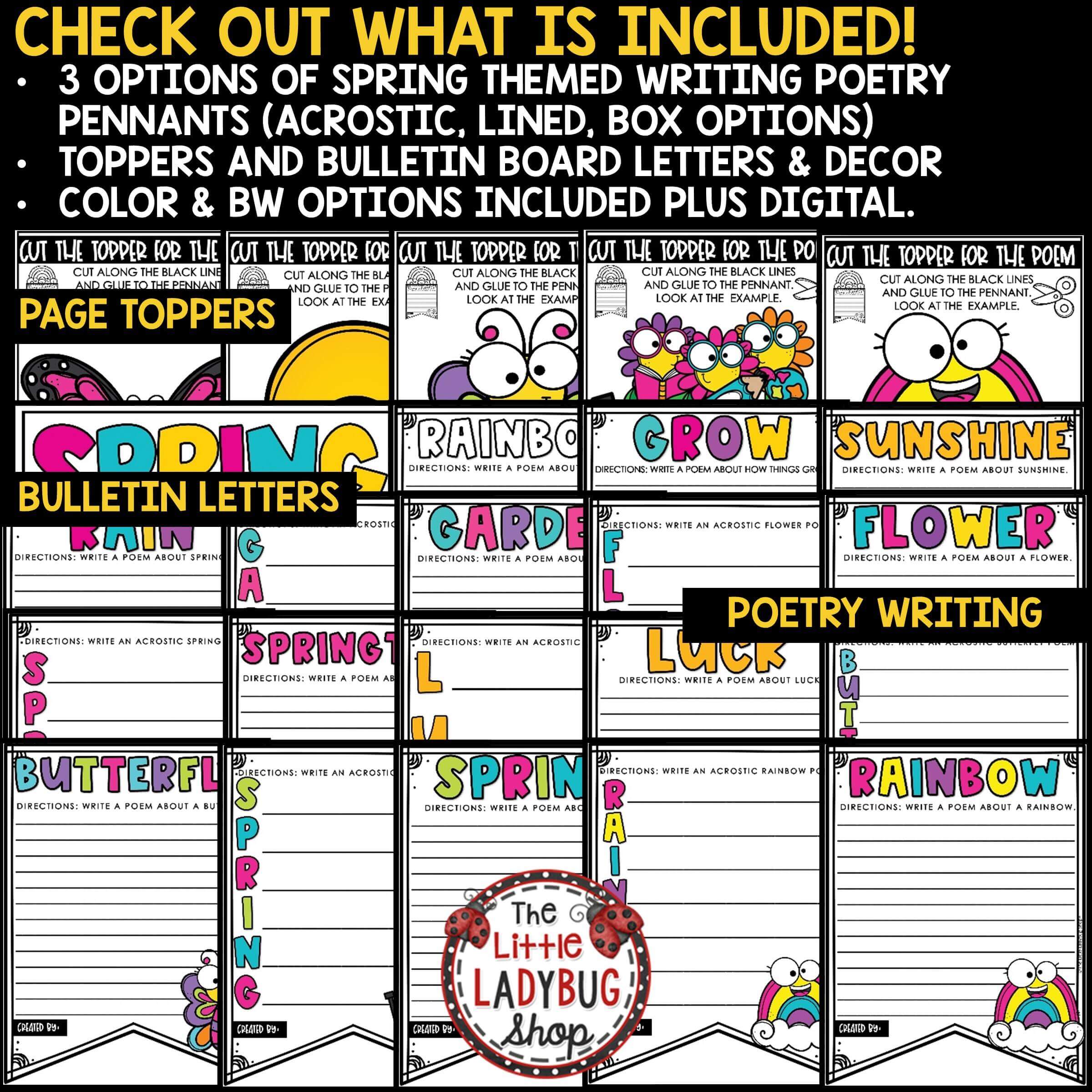
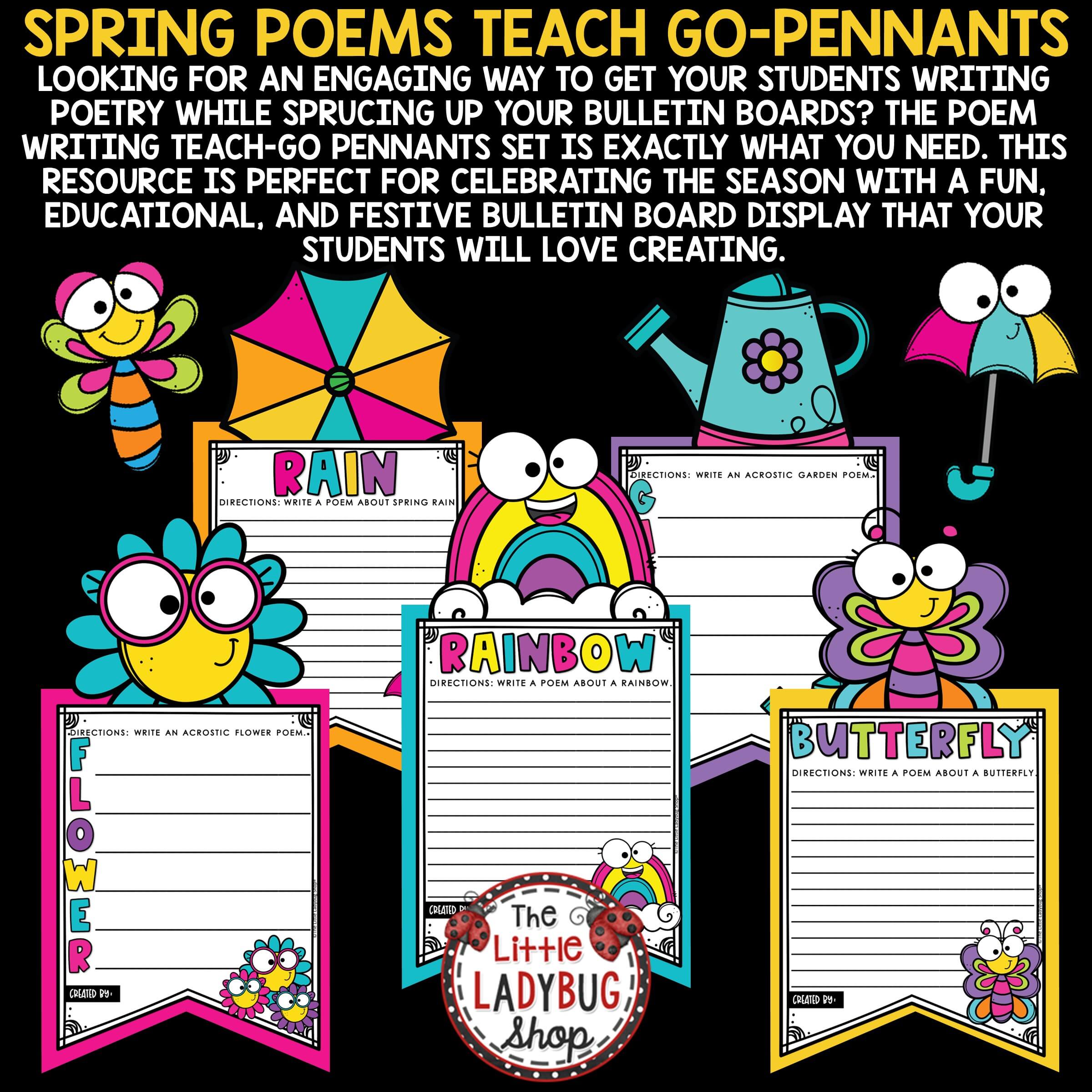
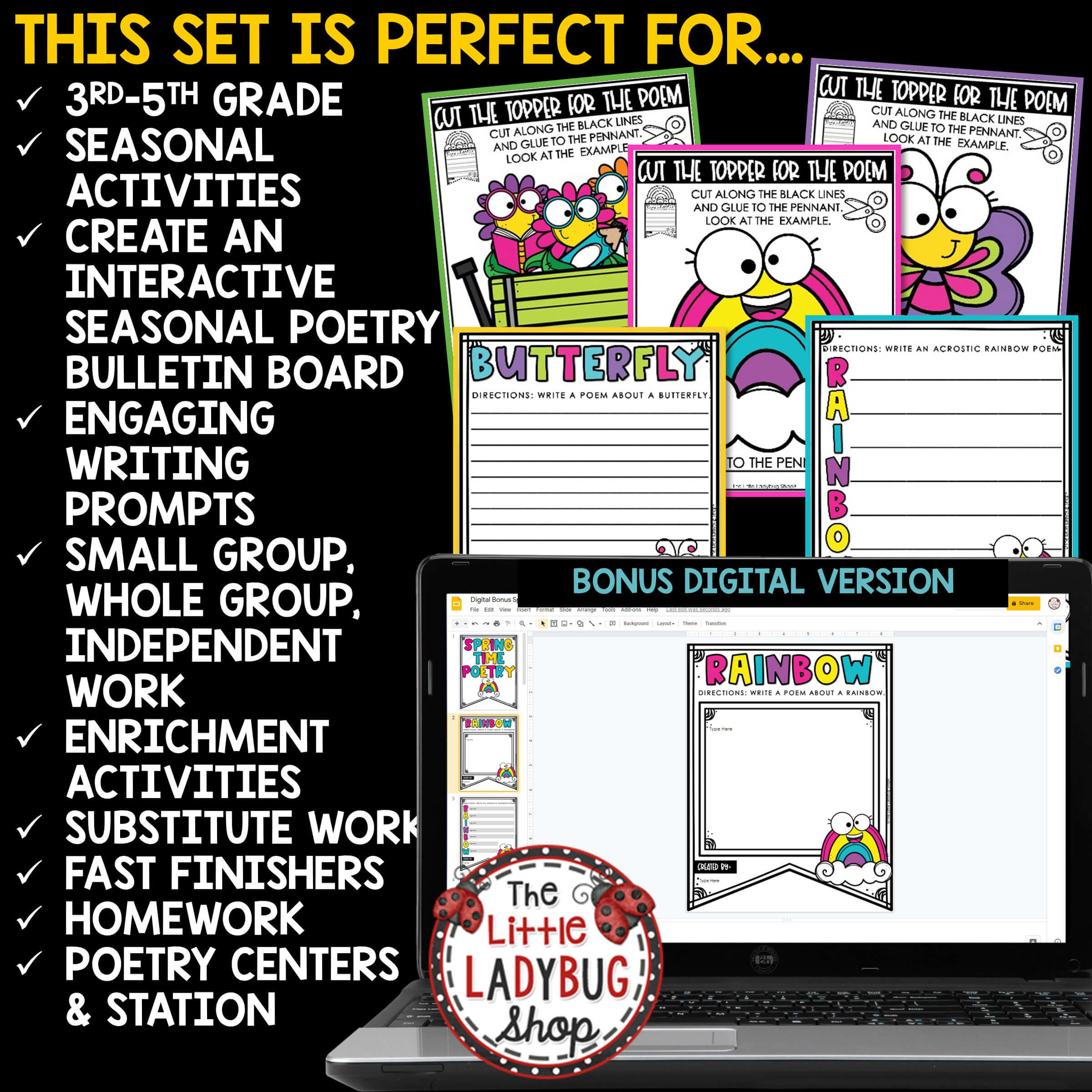
Best Poetry Books for Teaching Poetry Writing
If you’re looking for great books to introduce poetry writing in your classroom, check out these favorites:
- Poems for Kids: Over 600 poems for teaching poetry terms & poetic devices to children in grades 3-6
- Where the Sidewalk Ends: Poems and Drawings
- A Light in the Attic
- Rainy Day Poems
- Days Like This: A Collection of Small Poems
- The Random House Book of Poetry for Children
Spring Poetry Freebie!
Are you part of my exclusive freebie group? Be on the lookout for the release of my Spring Poetry Freebie, arriving soon in your inbox this April!
If you’re not a member yet, join today and grab engaging poetry resources to inspire your students. [Click here to sign up!]
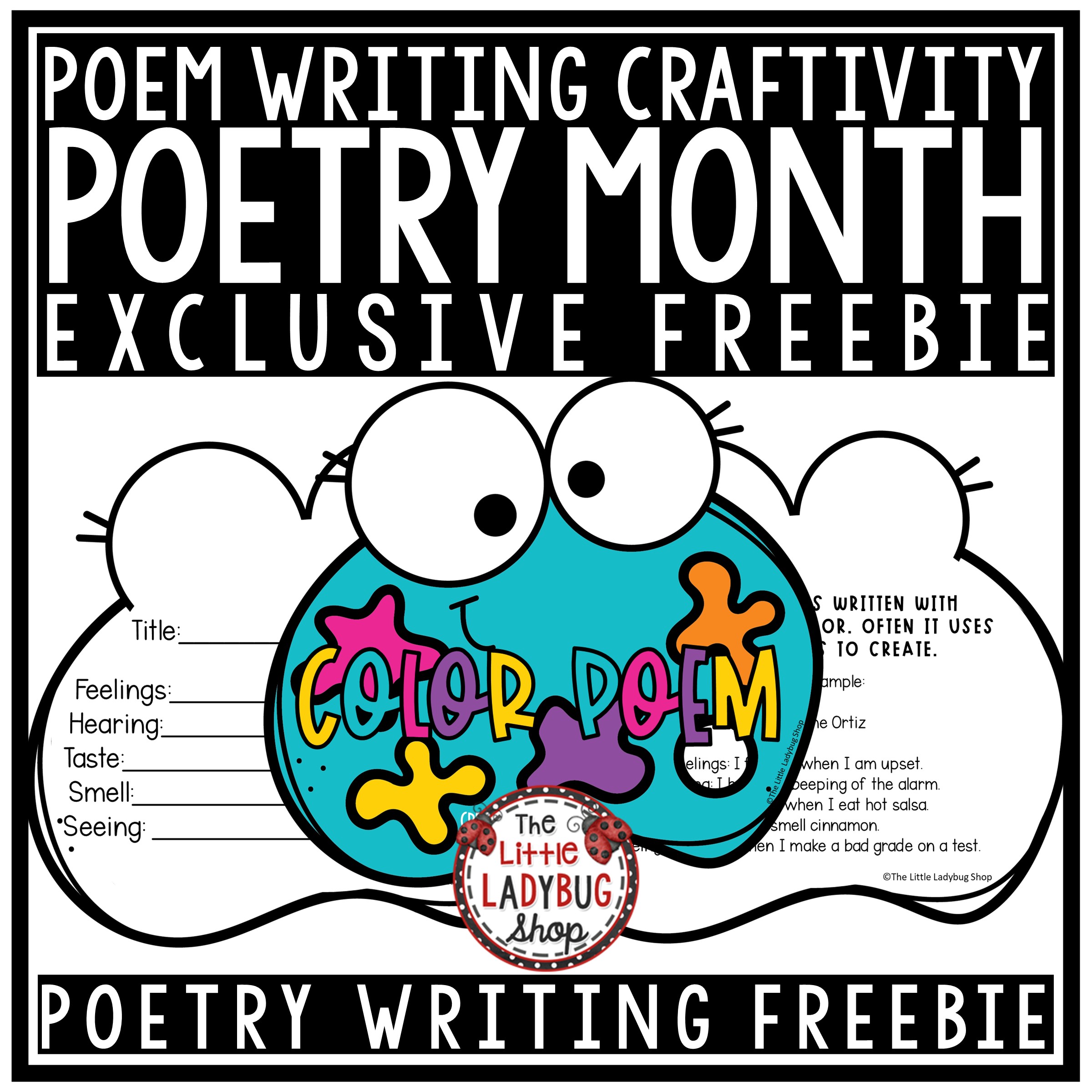
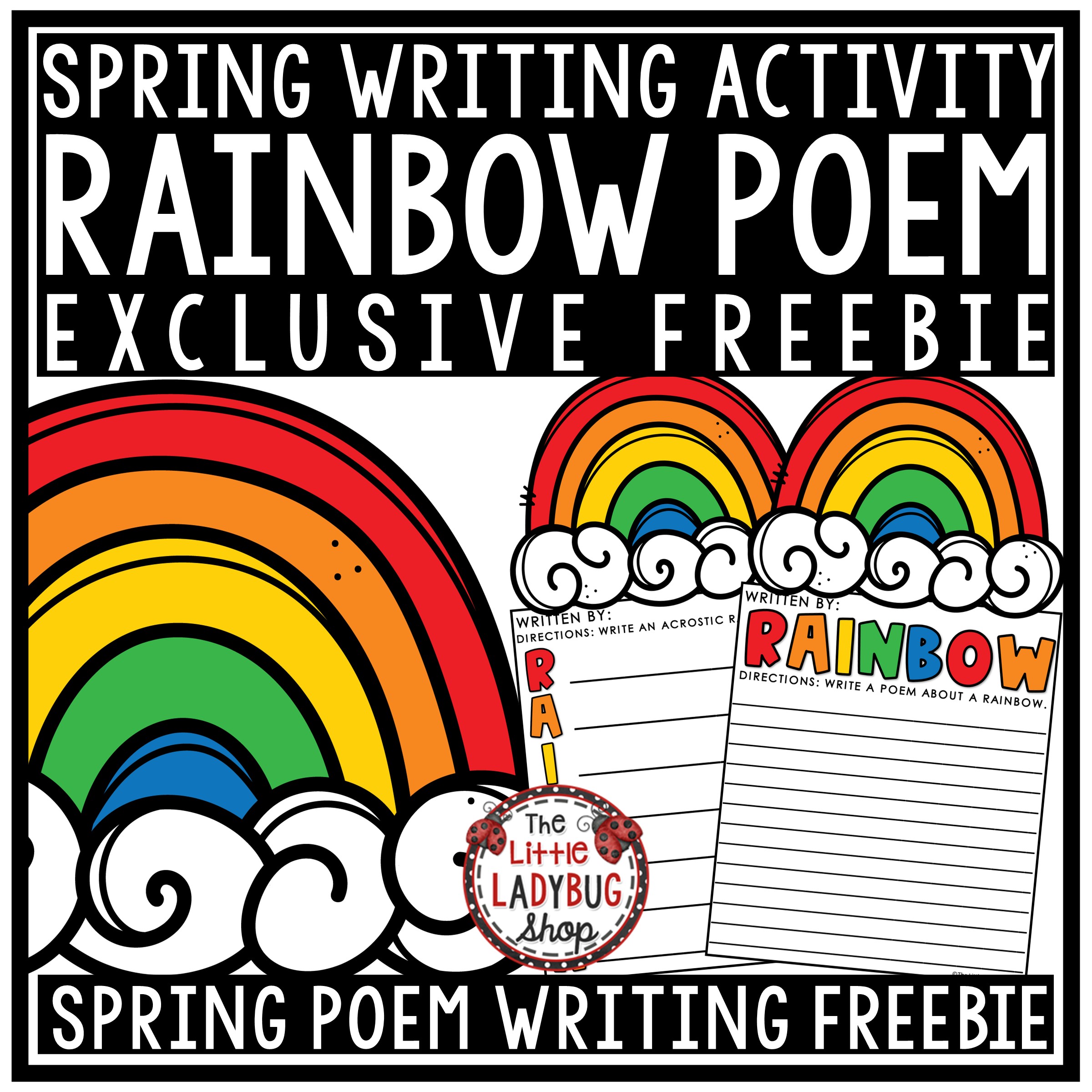

DON’T FORGET TO SAVE THIS POST FOR FUTURE REFERENCE
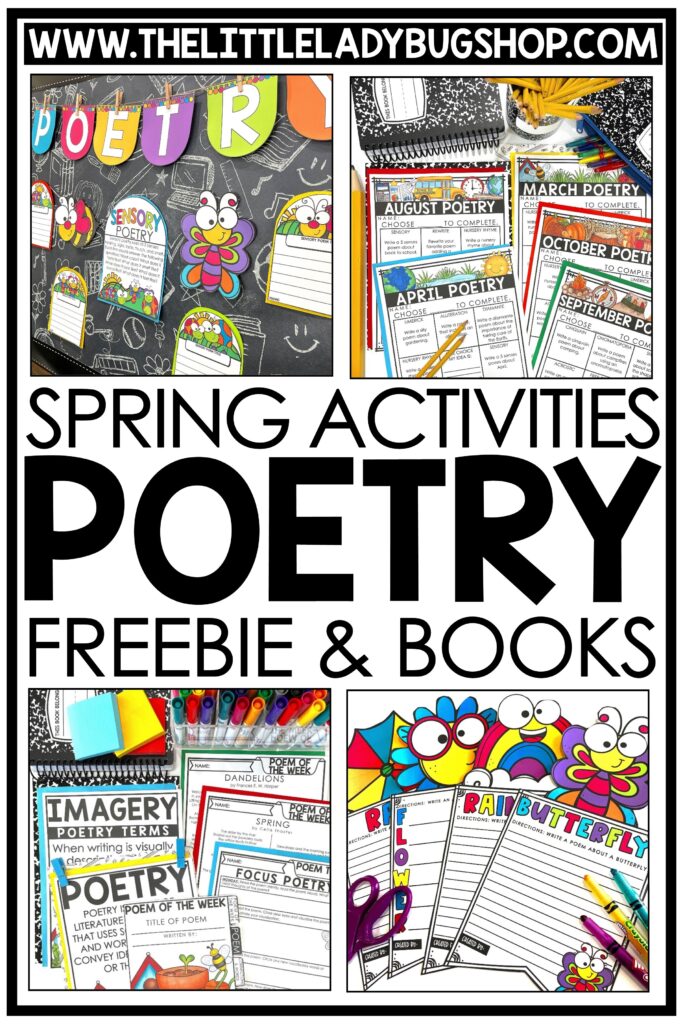
More Spring Poetry Writing from other Upper elementary Teachers
I am excited to share some ideas from two other teachers that you may be interested in reading about. Just click on any of the links to read more!
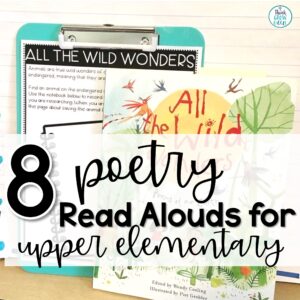
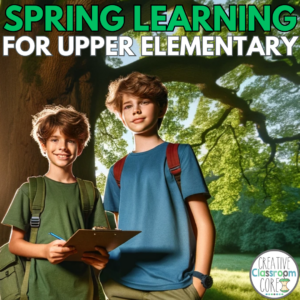
- Jeanine, from Think Grow Giggle, loves reading and writing poetry with her upper elementary students! She knows the power of a great read aloud, especially poetry read alouds! Reading aloud promotes a love of reading, models fluency, and encourages meaningful discourse about books. Reading poetry aloud to students stimulates emotions which allow students to easily make connections and comprehend the poem that is being read. This is an especially wonderful thing for our struggling readers, as it boosts their reading comprehension confidence. Read the list of the BEST poetry read alouds for upper elementary students and grab some fun and free printables to use with them, too! These read alouds are a must for any poetry unit!
- Marissa from Creative Classroom Core believes that Spring is the perfect time to inspire creativity in your upper elementary students through poetry! Marissa likes to encourage her students to observe the world around them and write sensory poems about blooming flowers, chirping birds, or refreshing spring rains. She also believes that collaborative group poems can also be a fun way to build classroom community, with each student contributing a line about their favorite part of the season. For a cross-curricular connection, Marissa likes to challenge students to write poems from the perspective of pollinators like bees or butterflies, tying in science lessons about ecosystems. Read more fun teaching ideas on the Creative Classroom Core blog!
This post may contain affiliate links for your convenience. View our full disclosure policy here.
